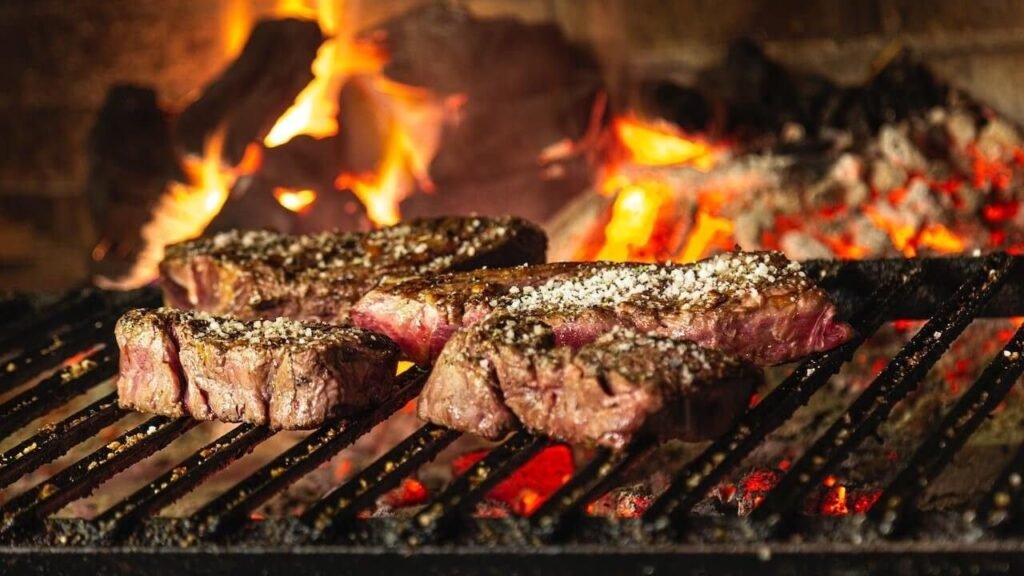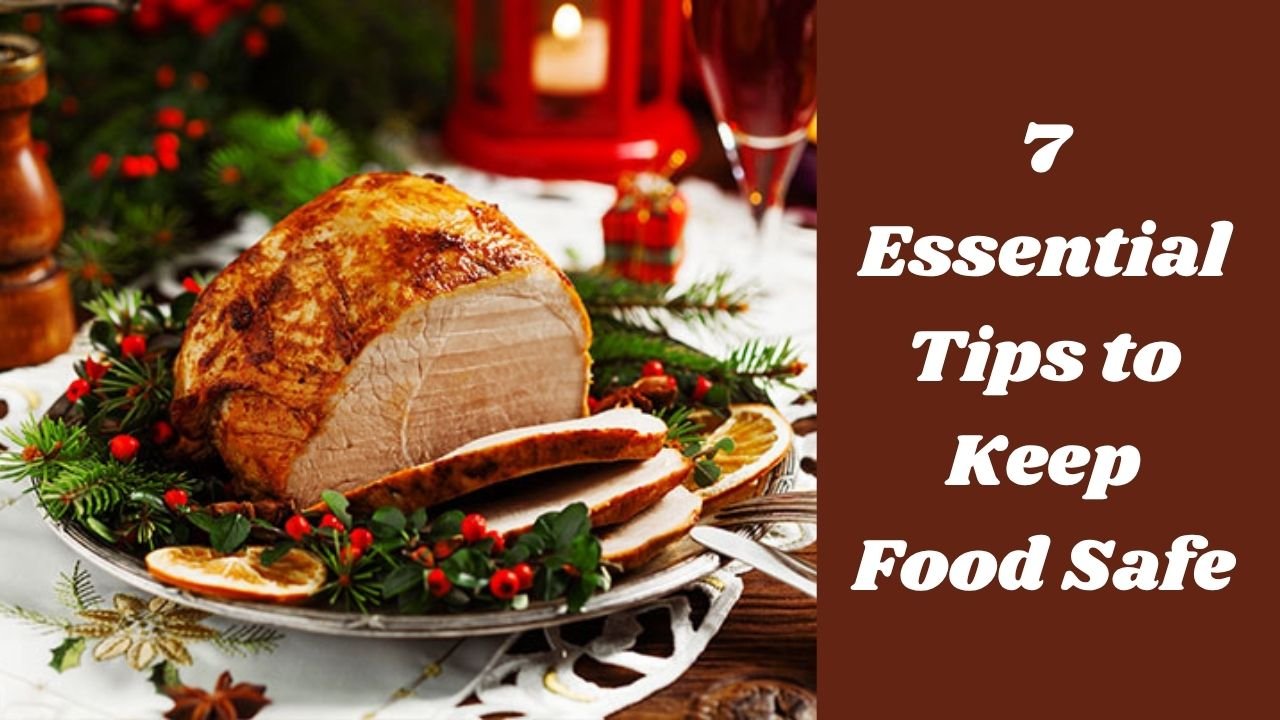Food is on the center of most holiday celebrations, and after it has been lovingly organized and served, ’tis the season for leftovers. But in case you don’t need it to also be the season for salmonella, knowing a few food safety rules is fundamental.
Sure, you’re not serving mayonnaise-laden salads in sweltering July temperatures. But foodborne illnesses can strike simply as without problems in cold weather, interior, at an all-day buffet. Or even while lingering for hours over a own family desk nevertheless loaded with capability third helpings.
According to the Centers for Disease Control and Prevention (CDC), outbreaks of Clostridium perfringens the most common purpose of food poisoning inside the United States, which cause nearly 1,000,000 illnesses every year — arise maximum regularly in November and December. We tapped a few food protection pros for his or her advice on common mishandling of some favorite excursion ingredients, and a way to live secure while stuffing yourself.
1. Freshen Up Your Holiday Buffet
A completely stocked buffet makes for an excellent excursion unfold, however the general rule for letting food — warm or bloodless — sit down out is set two hours at room temperature, says Janilyn Hutchings, a certified food safety professional and food scientist at StateFoodSafety, a food protection certification and education software for the hospitality industry, based totally in Orem, Utah. For that motive, it’s a higher idea to set out smaller quantities and replenish them extra often. To save on time, you could set up numerous platters and keep them refrigerated until wished.
The U.S. Food and Drug Administration (FDA) additionally advises swapping in new serving dishes and utensils in place of certainly adding fresh meals to the ones you’ve already set out. If any bacteria or different germs have started to grow, you’ll keep away from them.
2. Chill Soups and Stews Properly

Bacteria has a tendency to develop fast in temperatures between 40 and one hundred forty levels F, so perishable food have to be by no means be omitted at room temperature for greater than hours, according to the CDC. This may be difficult if you have big amounts of warm food like soups and stews, due to the fact in the event that they haven’t cooled enough, they could in reality enhance the temperature in your refrigerator to an hazardous stage briefly, setting different foods in there at chance, says Kim Rose, RDN, a registered dietitian and vitamins consultant based totally in Lakeland, Florida.
Make positive your fridge is about to forty degrees F or lower, and that soups and stews are thoroughly cooled earlier than you refrigerate them. You can divide big pots into smaller, shallow boxes to help them cool faster, or set them in an ice bath, in step with the U.S. Department of Agriculture’s (USDA) Food Safety and Inspection Service.
3. Be Cautious With Deli Meats
Holiday lunch buffets frequently feature sandwich alternatives like deli meat, and unopened packages of these can remaining about weeks in your fridge, according to FoodSafety.Gov. Once opened — or if they’re from the deli counter rather than commercially sealed — you’ll have approximately 3 to 5 days to use them.
Cold cuts can be a source of Listeria monocytogenes. For instance, one outbreak that hospitalized 12 humans and killed one become connected to listeria in Italian deli meats, in step with CDC records. This germ is also the motive pregnant girls are often suggested in opposition to consuming cold cuts.
If you’re serving any sort of deli meat, positioned out small amounts and refresh the buffet as wanted, recommends Hutchings. These meats can be risky after simply an hour or outside the refrigerator.
4. Prewash Raw Produce
Fruits and greens are alleged to be desirable for us, so you likely suppose a pleasant tray of uncooked produce with a few dip is a superb choice. And it’s far — as long as you wash it before slicing, chopping, or peeling. All too regularly, human beings don’t wash fruits and vegetables that don’t have edible skins.
However the bacteria at the outer parts can without problems be transferred to the fit for human consumption portions on a knife, according to the CDC. It’s continually excellent to wash produce below going for walks water, and use a bristle brush to wash those with craggy surfaces, like avocado and cantaloupe.
5. Don’t Let Roasts Rest Too Long

Remember Clostridium perfringens, that micro organism sickening humans every November and December? Well it’s usually located in cooked ingredients which can be served for the duration of the holidays, which include turkey and roast pork, in step with the CDC. Letting those big roasts sit down out at room temperature for too lengthy turns them into a breeding floor for C. Perfringens. As a way to lower danger, bear in mind carving the turkey or slicing different meats inside the kitchen and setting half on a serving tray, then refrigerating the relaxation at once.
6. Use Pasteurized Eggs
Several vacation favorites include uncooked eggs or yolks, which includes eggnog, hollandaise sauce, tiramisu, and Caesar dressing. Because of that, the CDC shows the use of pasteurized eggs for those dishes, and to preserve in thoughts that salmonella can live at the outside and inside of eggs. That way you need to keep eggs separate from different meals, ideally in their unique carton, to prevent move-contamination.
7. Refrigerate and Enjoy Leftovers Promptly
If you’re taking leftovers domestic from a celebration or dinner, you’ll need to be conscious how long they’ve been sitting out. Refrigerate them if it’s been near hours. And refrigerate or freeze them as soon as you get them home.
How lengthy they will ultimate depends at the type of meals you have got — as an example, hard cheeses will final longer than soft ones, according to the USDA — but an amazing rule of thumb is to consume leftovers within a week, says Hutchings. If you want to preserve them longer, placed them in the freezer, and eat inside about one to two months.
Whether you’re thawing them to reheat or taking them immediately out of the refrigerator, do an inspection first, Hutchings provides. That’s authentic even in case you placed them in the previous day. “Take a glance and in reality smell what you’re going to reheat,” she says. Not each meals has a telltale signal of being off, together with sourness or discoloration, however generally, you will be capable of locate something is spoiled.
Conclusion
Holiday feasts deliver people collectively, however meals safety must be a pinnacle precedence to make certain a completely satisfied and healthy party. By following these seven important guidelines—washing fingers, keeping off pass-infection, cooking thoroughly, and coping with meals garage—you could hold your own family and guests secure. Enjoy the vacation cheer with confidence, knowing your food are not best scrumptious but additionally secure to savor.


